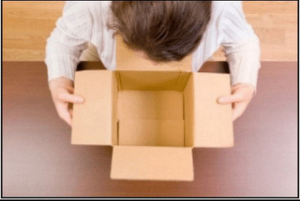 A very wise woman told me recently that part of loving someone was giving them the room to be disappointed in my decisions. I’m still trying to wrap my head around it. It seems I’ve spent the better part of my life trying to avoid and prevent disappointment in myself and others because nothing hurts quite as badly as getting your hopes up to have them dashed.
A very wise woman told me recently that part of loving someone was giving them the room to be disappointed in my decisions. I’m still trying to wrap my head around it. It seems I’ve spent the better part of my life trying to avoid and prevent disappointment in myself and others because nothing hurts quite as badly as getting your hopes up to have them dashed.
There are two schools of thought on this. The wise old adage (and it has been attributed to so many people, I don’t know who actually said it)
Expect nothing and you will never be disappointed.
I’ve tried this truth with myself and my children in everything from Christmas presents to getting picked for the school play. If you don’t expect a motorcycle or a starring role, you can avoid the disappointment when you don’t get them.
While it might be true (although deep down I suspect it’s just a façade to cover disappointment we then can’t name), we end up missing out on one of the greatest parts of life, hope. Hope is the opposite of disappointment, and it’s an integral part of my faith roots.
Indeed, we may say we follow the admonition of Paul. We believe all things, we hope all things, we have endured many things and hope to be able to endure all things. If there is anything virtuous, lovely or of good report or praiseworthy, we seek after these things. (13th article of faith)
No way we can be a hoper and a seeker without becoming disappointed.
As I grew to adulthood, I subscribed to the belief it was my job to set expectations for both myself and my kids to avoid the disappointment. Things like “Why don’t you ask Santa for an ipod because no way is he bringing you a laptop” or “Maybe you don’t really want to be a movie star when you grow up, maybe you just want to teach acting” were always coming out of my lips. It was as if my job was to make disappointment not exist. When I could not manipulate the outcome, I could manipulate the expectation. It was okay for my daughter to try out for dance company or for me to apply for my dream job, but only if we had “realistic” expectation (read expectation for failure) so we wouldn’t be disappointed.
On the flip side, I see commitments and decisions I’ve made purely out of a desire to not disappoint someone. I’ve stayed in jobs, organizations and roles that no longer suited me and I needed to move on from because I didn’t want to disappoint those I love. I couldn’t manage the expectations, but I did have power over the outcome, and felt it my job to make sure I was not the source of disappointment.
But I’m coming to the understanding it’s neither my job to set the expectation nor to make sure it’s met. Disappointment is a healthy and normal experience, teaching us to detach from the outcome and to realize that even that which we hoped for isn’t immune from causing disappointment itself.
I am a new enrollee in the Mark Twain school of thought on this one:
Twenty years from now you will be more disappointed by the things that you didn’t do than by the ones you did do. So throw off the bowlines. Sail away from the safe harbor. Catch the trade winds in your sails. Explore. Dream. Discover.
Do you dare to disappoint?

Lovely post, Mel, I frequently feel that you’ve been in my head.
Yep. I feel like my fear of disappoinment is bound up with my (previously) deep fear of failure. The strange thing is that I would have told you at the time that disappointment is part of life and that we can learn and grow from failure, but, secretly, I was living with another, hidden, idea that I should never fail and if I just did everything carefully enough — and, often, aimed low enough — I could avoid disappointment. Failure and disappointment came anyway.